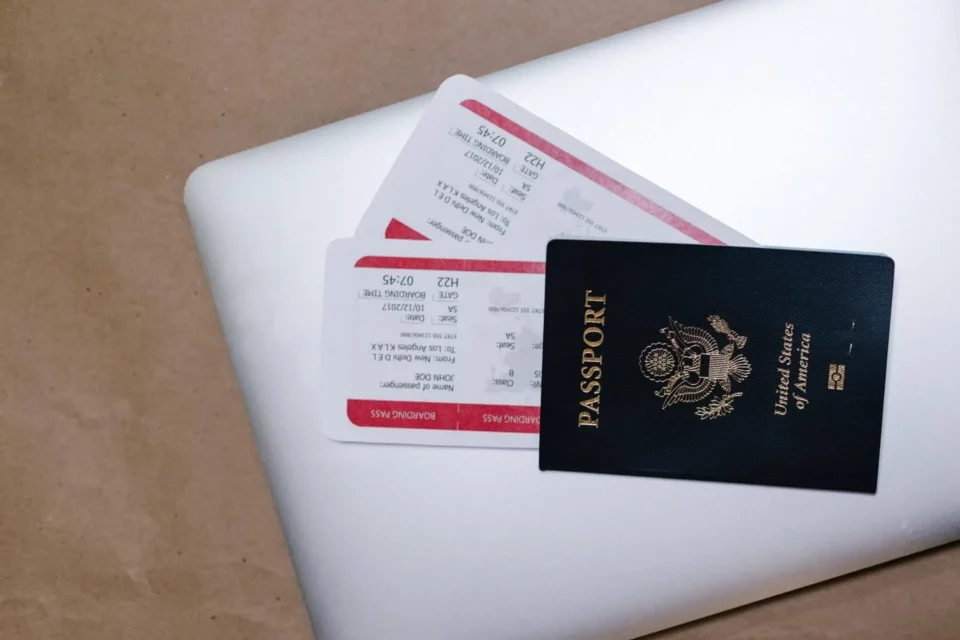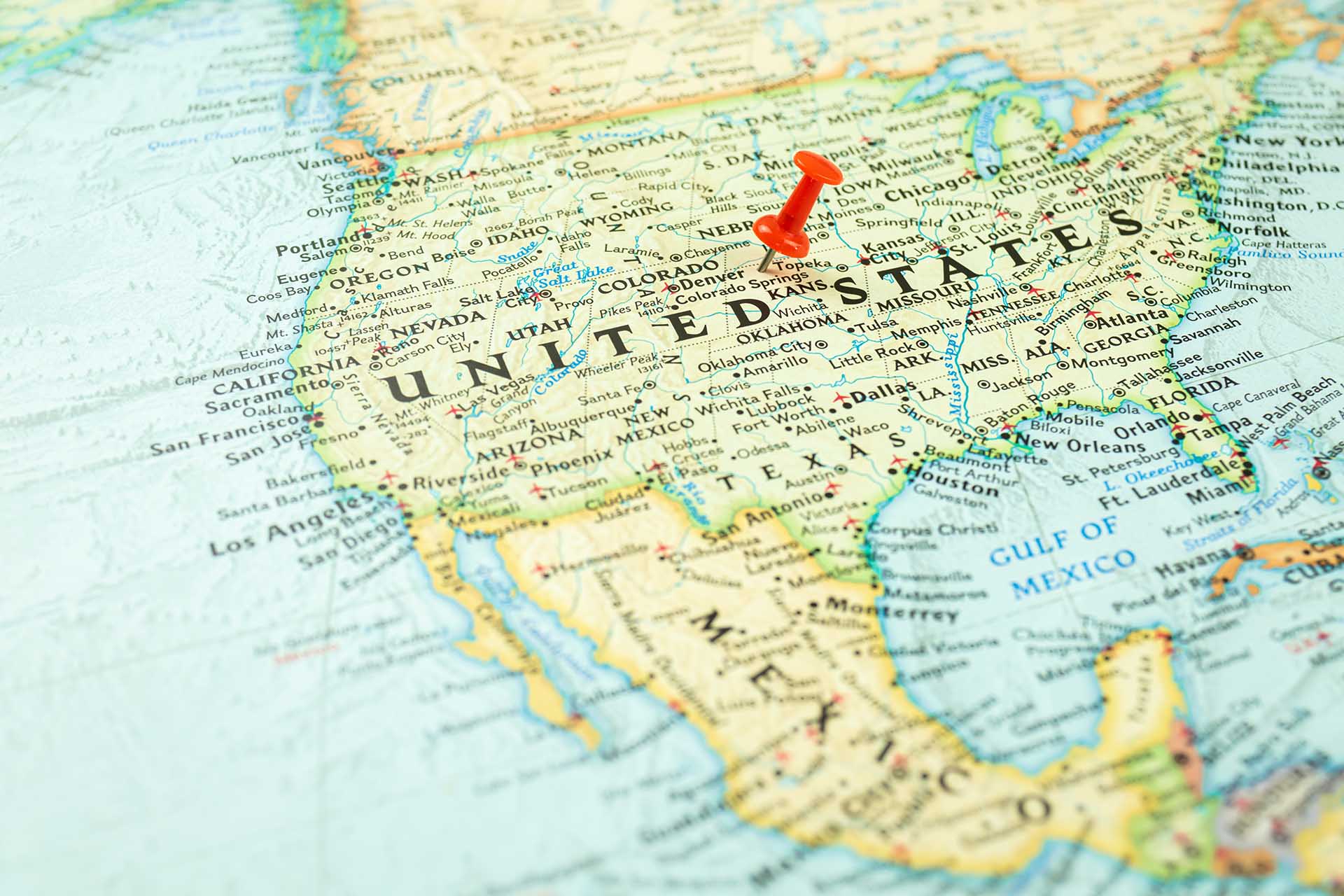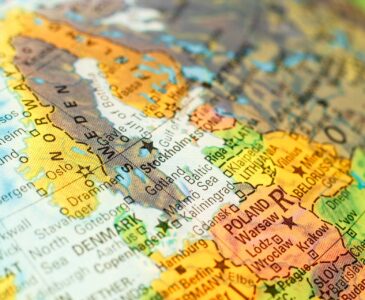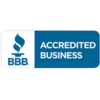Moving from the US to Europe marks the beginning of an exhilarating and very important chapter in your life. It’s a journey of discovery, embracing diverse cultures, learning new languages, and exploring breathtaking landscapes. Our expert international relocation tips will simplify your transition, providing key insight for a seamless relocation to your future abode.

How Many Americans Relocate to the EU Annually?
Last year, Eurostat and SchengenVisaInfo.com reported that the EU granted residence permits to over 76,000 Americans. Leading this trend were these European countries:
- France,
- Spain,
- Germany,
- Netherlands,
- Italy,
- Denmark,
- Switzerland,
- Ireland,
- Portugal,
- Czech Republic.
Sweden, Belgium, Hungary, and Austria were the countries that closely followed, while Lithuania and Linhestain were at the bottom of this list.
Take Your Time When Researching and Choosing a European Destination
Relocating to Europe is not a simple decision to be rushed. It’s essential to invest time in researching and reflecting on various aspects of potential countries. This careful consideration ensures that your choice aligns with your lifestyle, aspirations, and practical needs.
These Are the Factors You Should Consider When Selecting Your Future Country
Moving abroad demands some time for thorough planning and preparation. There are some key factors you must review before you book your plane tickets and call it a day.
The cost of living varies significantly across the EU. So, assess your current financial situation against the living expenses in different countries. This includes housing, food, healthcare, and entertainment. A country that matches your financial comfort will make the transition smoother.
Language is another crucial aspect of your transition. Consider whether you’re willing to learn a new language or prefer a country where English is widely spoken. Overcoming language barriers is key to integrating into the community and accessing essential services.
Lastly, there is a cultural adaptation in Europe you need to think about. Every country has its unique culture and social norms. Understanding these nuances is vital for mitigating cultural shock. Research local customs, work-life balance, and social attitudes. A country whose culture resonates with your values and lifestyle will help you feel more at home.

Explore the Immigration Requirements and Start Your European Visa Process on Time
Navigating through immigration requirements and documents needed for your relocation can be overwhelming. It’s important to start early, as visa processes can be time-consuming and complex.
Understanding and adhering to the specific immigration laws of your chosen country is crucial for a hassle-free transition. Ensure that you give yourself ample time to organize important documents, fill out applications, and navigate through any bureaucratic hurdles.
These Are the Different Types of Visas Available for US Citizens Moving to Europe
When staying in the EU ground for an extended period, a residency permit is essential. The application process varies by country. However, it generally involves proving financial stability, health insurance, and a valid reason for staying (such as employment or family reunification). Prepare to submit detailed documentation and potentially undergo an interview process.
For those moving overseas for employment, a work permit is a must. This typically requires a job offer from your future employer. They often initiate the application process by proving that the position couldn’t be filled locally. As an applicant, you’ll need to provide personal and professional documents, including qualifications and work experience.

Set the Relocation Budget and Create a Financial Plan
A well-thought-out financial plan is fundamental for a smooth and stress-free relocation experience. Start by setting a realistic budget that covers all aspects of your international relocation. This includes moving costs such as shipping, travel expenses, and initial accommodation.
It’s also crucial to understand the implications of currency exchange rates, as they will affect your purchasing power. Additionally, familiarize yourself with the banking system of your new country and the tax obligations you might face both in the US and abroad. Adequate financing will not only ease the anxiety about moving out but also ensure a stable start in your future home.
Plan Your Relocation and Create a Good Packing Strategy
The success of your relocation hinges on a well-organized packing strategy. Begin with creating a comprehensive international moving checklist. It should include everything from setting the date and hiring an overseas shipping company to sorting and decluttering your household items.
Prioritize items based on necessity and consider downsizing to lower your load and save some money on relocation costs. For the boxing-up process, use durable packing materials and label boxes for safe handling and an easier unpacking experience.
Research options for shipping overseas and additional insurance, understanding restrictions and customs requirements for your destination country. Remember, efficient packing not only eases your relocation but also helps in setting up your new home with less stress.

Choose a Reliable International Moving Company and Book Their Services on Time
Relocating across the world can be tiring when tackling everything by yourself. The complexities of moving from the US to Europe require expertise in regulations, customs, and shipping tasks. That’s why choosing a reliable moving company can streamline this process significantly.
My International Movers offers comprehensive international moving services, ensuring your belongings are securely and efficiently transported. Meanwhile, our professional packing services will ensure that your items are well-protected, providing peace of mind throughout this transitional period.
International Moving by Sea
Are you moving overseas and need help with the relocation process?
Read MorePacking Services
International relocation can be divided into several main stages and packing is one of them.
Read MoreStorage Service
Organizing an international move can be a nightmare if you don’t have a professional relocation company to help you with the overseas shipping of your entire household inventory.
Read MoreLook for the Best Country for Your Needs and Streamline Your Settling Process
Making the right choice is pivotal for the success of your relocation. Consider what matters most when picking your future location – whether it’s a vibrant cultural scene, a strong job market, or a tranquil environment.
Once you’ve picked a destination that aligns with your needs, focus on streamlining your settling-in process. This involves understanding local customs, setting up essential services, and building a new support network. The more prepared you are, the smoother your transition will be.
Decide Between Renting and Buying When Looking for Your Future Accommodation
Renting offers flexibility. It is often a wise choice initially, allowing you to explore different areas and understand the local housing market better without a long-term commitment.
On the other hand, buying property offers stability and can be a valuable investment. Consider factors like your budget, duration of stay, and the real estate market dynamics of your chosen location. Weigh the pros and cons of each option carefully to make a decision that best suits your long-term plans and lifestyle.

Cultural Integration and Embracing Your Expat Life in Europe
Successfully integrating into your new environment goes beyond just shipping your belongings. It involves immersing yourself in the local culture. A key step in breaking the ice is learning the language of your host country. Even basic proficiency can greatly enhance your daily interactions and deepen your understanding of the culture.
Engage actively with local communities, participate in social events, and embrace local traditions and customs. This involvement will enrich your expat experience. Adapting to a European lifestyle may take time, but keeping an open mind and a willingness to learn will help you settle in and truly embrace your new life abroad.

With Our Overseas Moving Company, Moving From the US to Europe Will Be a Breeze
Now that you have found the perfect destination, it’s time to surrender to the knowledgeable hands of professionals and let them handle your relocation. My International Movers are more than happy to help you in this endeavor.
Our expert team is armed with the best materials and tools to make your international journey a breeze. Don’t shy away from reaching out to us right away and booking our services on time. All you have to do is pick a date, and the rest is our concern.
FAQ
How Do I Handle International Banking and Finances When Moving?
Handling international banking and finances is a key aspect of relocating to Europe. Start by researching banking options in your new country and consider opening a local bank account for easier transactions.
Be aware of international transfer fees and exchange rates. It’s advisable to maintain a bank account in the US as well, especially for any ongoing financial commitments. Also, familiarize yourself with the tax regulations in your new country and any US tax obligations for expats.
What Are the Best Ways to Find Housing in Europe?
Finding housing in Europe varies by country and city. Online platforms and local real estate agencies are good starting points. Consider renting before buying to get a feel for different neighborhoods.
Attend viewings to inspect properties and understand local renting or buying procedures. Networking with locals or expat communities can also provide valuable insights and leads for finding the right home.
Are There Specific Legal Requirements for US Citizens Moving to Europe?
Yes, there are specific legal requirements for our citizens moving to the EU. These include obtaining the right visa or residency permit, registering with local authorities, and possibly acquiring a work permit.
It’s essential to comply with the local laws regarding health insurance, taxation, and driving licenses. Each European country has its own set of rules, so thorough research and preparation for your specific destination are necessary.
How Can I Ensure a Smooth Transition for My Family?
Ensuring a smooth transition for your family involves careful planning and open communication. Involve family members in the moving process and discuss expectations and concerns. Research local schools and educational facilities if you have children.
Explore healthcare options and ensure that all family members have the necessary medical coverage. Helping your family learn about the new culture, language, and community activities can also ease the transition.
What Should I Know About Working or Studying in Europe?
When planning to work or study in Europe, it’s important to understand the specific requirements of your situation. For working, this includes obtaining a work permit and understanding the job market and employment laws in your future destination.
If studying, research universities or schools, understand the application process, and check for any language requirements. Explore options for student visas or permits, and understand how your qualifications from the United States are recognized in Europe.
How Can I Reach My Fellow Expats?
Connecting with the expat community can greatly enhance your overseas experience. Look for local groups or communities in your area. They can often be found through social media platforms, forums, and local community boards.
Attending international events, language classes, and cultural activities also offers opportunities to meet other expats. Additionally, embassies and consulates often have resources or events for citizens living abroad. Reaching out to fellow expats not only provides a sense of community but also valuable insights and support as you navigate your new environment.



















